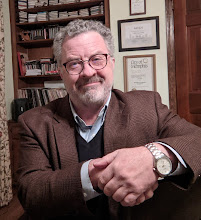I am attempting to define “compassionate conservative” for one person who is genuinely asking what it means. This is less a blog than an attempt to answer, though I claim to be no expert and only offer my opinion. Here goes.
While not always my favorite source, Wikipedia has some interesting tidbits on the term. Clearly the juxtaposition of “compassionate” and “conservative” is supposed to be a bit jolting so it is not surprising to read that one of the origins was used in a chiding way.
Nonetheless the term was promoted later with pride to denote a conservatism that did not turn a blind eye to social ills. I am not writing as an apologist for any political party or administration but would like to point out that the idea of a compassionate conservative is feasible.
From a religious standpoint, divergence about compassion and policy was most notable around 1900 when the more conservative evangelicals poured their energy into the Temperance Movement while progressive mainline churches promoted the Social Gospel.
Compassionate conservatism was espoused by the Bush Administration as a means of bringing conservatives into the social services movement . Building upon the Clinton Administration’s Charitable Choice which allowed churches and other religious institutions to receive government funds more easily, the Bush Administration became even more visible in building partnership between faith-based organizations and government, establishing the Office of Faith-Based and Community Initiatives. The Obama Administration has a strong Office of Faith-Based and Neighborhood Partnerships. Long story short, faith-based group including conservatives evangelicals can and do have partnerships with government to offer aid and hope in communities.
Government funds do not and cannot got to prosthelytizing but can go to services offered by conservative and as well as mainline faith groups. In Memphis we see both. For example the Emmanuel Episcopal Center and MIFA – mainline, progressive – work in the Peabody-Vance area not far from Streets Ministries and Advance Memphis – conservative, evangelical. The partnership between the City of Memphis and Memphis Athletic Ministries is a good example; faith-based MAM contracted with the City to re-open four closed community centers.
There are even evangelical groups embracing environmental activism. Similarly, I am a member of REP, Republicans for Environmental Protection, a small but credible voice.
The term compassionate conservative is not used much anymore and it is hardly the kind of topic that would make page 1 above the fold of a newspaper when there are so many more interesting stories with candidates from both right and left screaming at each other. It is important to look at actions separate from rhetoric, and it is also important not to lump people into huge homogenous groups.
Your second question: what is the Religious Right. The short-hand refers to an alliance of faith-base and political groups which share turf on the far right of the spectrum. To go back to the example of the Temperance Movement and the Social Gospel, both the fundamentalist and the liberals were exhorting congregations to civic engagement as a matter of conscience …that engagement simply took different directions. If there is a Religious Right (and there certainly is), then there is also a Religious Left. Contrast Jerry Falwell with William Sloane Coffin and you‘ll get the idea.
I think of compassionate conservative as a 1990s term and religious right as a 1980s term. The landscape today is different. Political debate today is childish and mean-spirited and often for show while the work of community building carries on in spite of the politicians. Some social service groups, both faith-based and secular, are working together, some working along parallel tracks, there is some duplication and redundancy, but I can’t recall seeing non-profits and community initiatives that are absolutely working at odds with one another. Compassion is expressed with different priorities in our town, but most of it in the right direction.

No comments:
Post a Comment